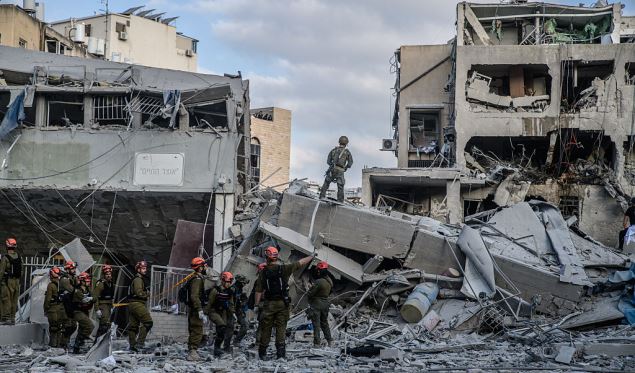In a recent statement, US President Donald Trump criticized French President Emmanuel Macron and UK Prime Minister Keir Starmer for their perceived inaction in ending the war in Ukraine.
Trump also belittled Ukraine’s President Volodymyr Zelensky, questioning his importance in peace negotiations.
Despite his criticisms, Trump also acknowledged the efforts of other European leaders and expressed a willingness to engage in diplomatic discussions with them.
Since Russia’s invasion of Ukraine in 2022, the UK, France, and other allies have been providing military aid to Ukraine. European leaders convened for a crisis summit in Paris to address the ongoing conflict, while discussions between the US and Russia took place in Saudi Arabia.
The collective response from European nations underscores a unified stance in supporting Ukraine’s sovereignty and territorial integrity.
In a nuanced display of diplomacy, Trump’s statements regarding Macron, Starmer, and Zelensky reveal a complex relationship dynamic.
While expressing admiration for Macron and Starmer, describing them as a “friend” and “a very nice guy” respectively, Trump’s remarks on Zelensky reflect a more critical tone.
This juxtaposition highlights the intricate web of international relations and the multifaceted nature of diplomatic discourse.
International sanctions and support
In response to the invasion, the US, UK, EU, and other countries have imposed numerous sanctions on Russia. Many European nations have pledged support and aid to Ukraine, with the UK signing a long-term pact to stand by Ukraine’s side for a century.
The robust sanctions regime signifies a coordinated effort to hold Russia accountable for its actions and support Ukraine in its time of need.
Amidst the diplomatic developments, Trump’s Ukraine envoy Keith Kellogg praised Zelensky as a “courageous leader” following positive discussions.
However, Trump’s own remarks about Zelensky have been critical, accusing him of lacking negotiation leverage.
This contrast in perspectives underscores the diversity of viewpoints within diplomatic circles and the challenges of navigating complex geopolitical landscapes.
Trump asserted the necessity of his personal involvement in peace negotiations between Russia and Ukraine. He blamed Zelensky for the conflict and suggested that Russia was unable to reach a deal with the Ukrainian president.
The push for peace talks reflects a shared desire for a resolution to the conflict, albeit with differing opinions on the most effective approach to achieving lasting peace in the region.
The US is pushing for a deal granting rights to Ukraine’s rare earth minerals in exchange for military support. Trump framed this agreement as a form of repayment, emphasizing the importance of Zelensky and Putin coming to an agreement to end the war.
Ukraine has proposed alterations to the deal, signaling ongoing negotiations. The negotiations surrounding the minerals deal highlight the intersection of economic interests and security considerations in international relations, underscoring the complex interplay of factors shaping diplomatic engagements.
Check also;
This is not a Paywall, but Newslex Point's journalism consumes a lot of time, hard-work and money. That's why we're kindly requesting you to support us in anyway they can, for as little as $1 or more, you can support us .Please use the button below to contribute to Newslex Point, Inc. using a credit card or via PayPal.

 Newslex Point News in Uganda, Uganda news
Newslex Point News in Uganda, Uganda news












